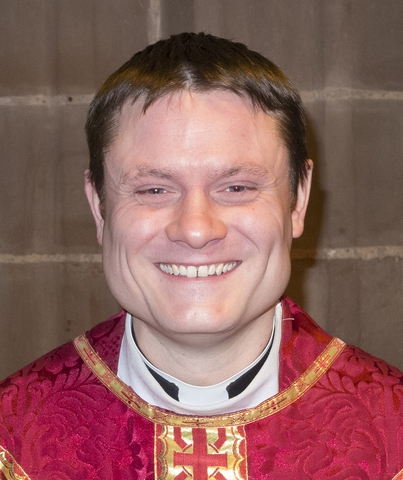
December News From The Clergy
25 Nov 2019 • From the Clergy
In 1997, Birmingham City Council invented Winterval, a clumsy elision of ‘Winter Festival’ which ran through the winters of 1997-98 and 1998-99. The aim was to encourage people to engage in celebrations in the newly-rejuvenated city centre, encompassing various festivals which took place during the winter months, including Diwali (Hindu), Ramadan (Muslim), Hanukkah (Jewish), Chinese New Year and, of course, Christmas. For the country’s multi-ethnic second city, home to several different faith communities, the idea was not without merit. Church leaders, however, immediately criticised the idea in depressingly familiar terms, deeming it ‘political correctness’ and decrying the ‘sell-out’ to secularism.
In more sinister terms, it gave ammunition to those (especially in the right-wing tabloid press) who saw this in the context of banning nativities and religious aspects of Christmas in schools, in the name of being sensitive to other faiths. (In truth, British Muslims - the faith usually cited as responsible - have always been clear that they have no problem with Christmas being celebrated as a Christian festival. It is misguided local councils who have failed to grasp that allowing each faith community to celebrate, rather than banning everything, is a sign of true multicultural tolerance.) Christmas had become a political weapon.
For that reason, I always get suspicious when people talk about returning to the ‘true meaning of Christmas’. Of course, it is a laudable aim to step away from the rampant commercialism of December (and earlier), to ‘put the Christ back in Christmas’ and remember that this is fundamentally Christian occasion. The use of names other than Christmas for the season actually helps to distinguish between the secular orgy of consumerism and the religious festival.
However, what do people mean when they talk about putting Christ back in Christmas? If all this involves is being allowed to perform nativities and see religious scenes on Christmas cards, then I am not sure that really is restoring the meaning of Christmas. After all, the Christmas story of nativity plays and Christmas cards is not the ‘true’ story, rather one woven together from Matthew and Luke, with a few elements added in from Isaiah or popular tradition. There is no ‘real’ story in the historical sense. All we can say with confidence about the story is that Jesus was born to Mary and Joseph.
So, while remembering the story of the birth is important, the Christmas story is meaningless if all we do is retell it as a past event. The Christian importance of the story lies in its significance, what the incarnation tells us about the love of God for humanity. In becoming human, God came to the poor, the lost, the broken to show them the promises of the kingdom and assure them of divine love. It is an immense risk by God, to make himself powerless and vulnerable to show the way of love to humanity.
To put the Christ back in Christmas is surely not just to tell the story but to live out its meaning, to show the love, compassion and vulnerability Christ demonstrated in being born into the world. In a fractured, divided nation and world of hatred and suspicion, to reclaim Christmas as Christian today is to foster reconciliation, to love our neighbours, to reach out to the poor and broken, and to work towards that kingdom Christ was born to herald.
Phil